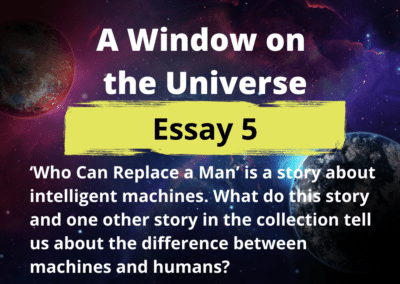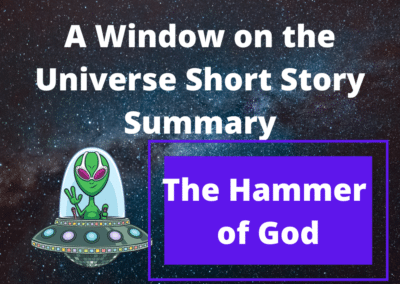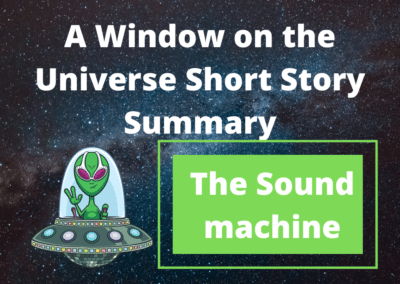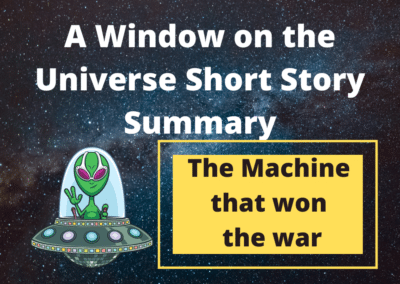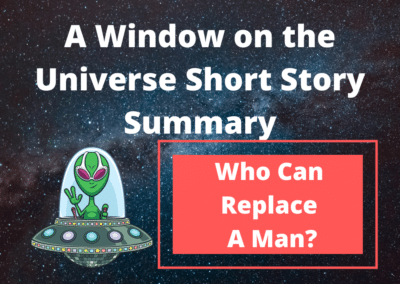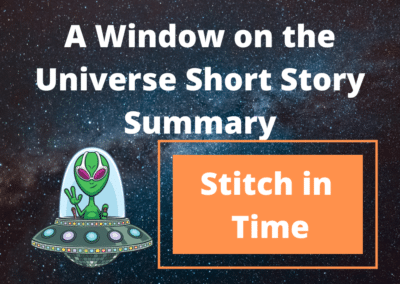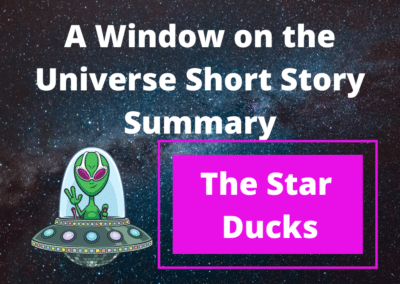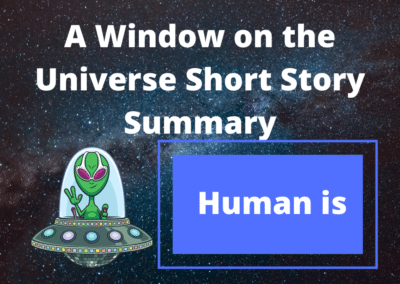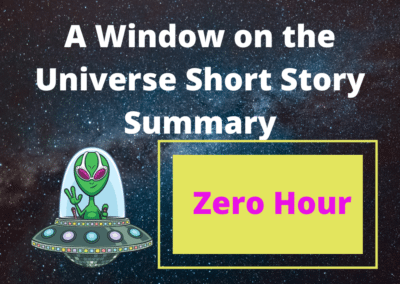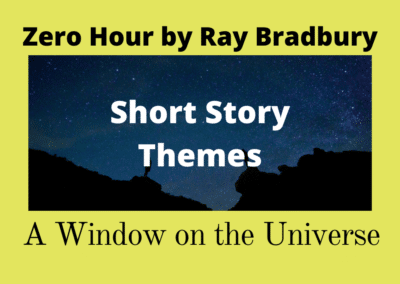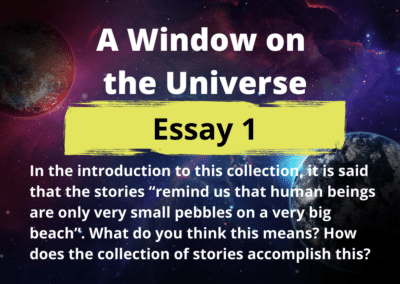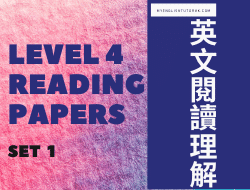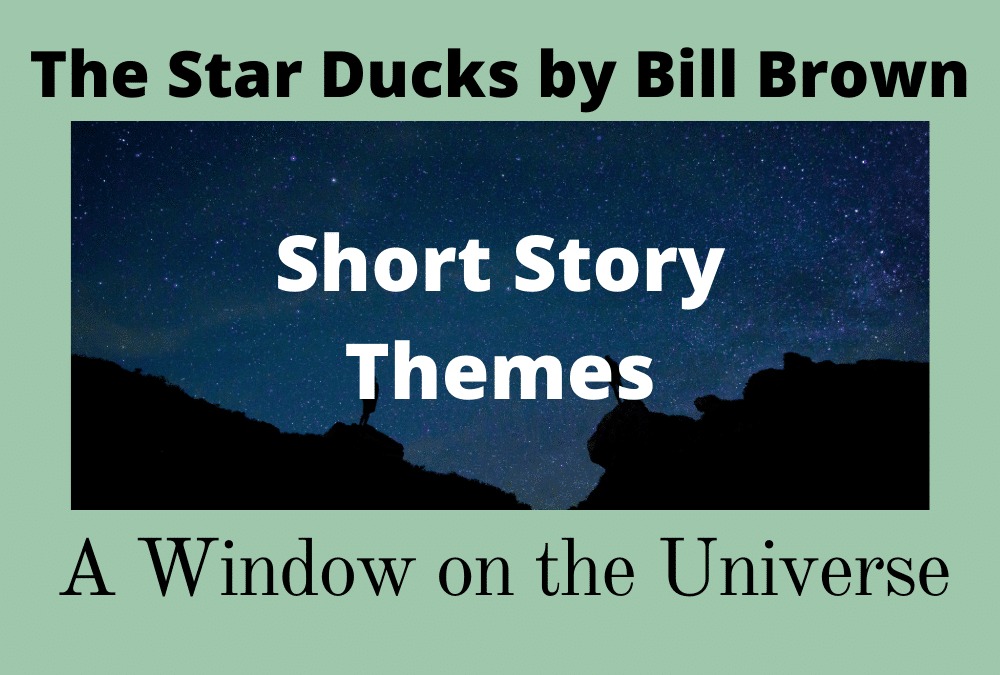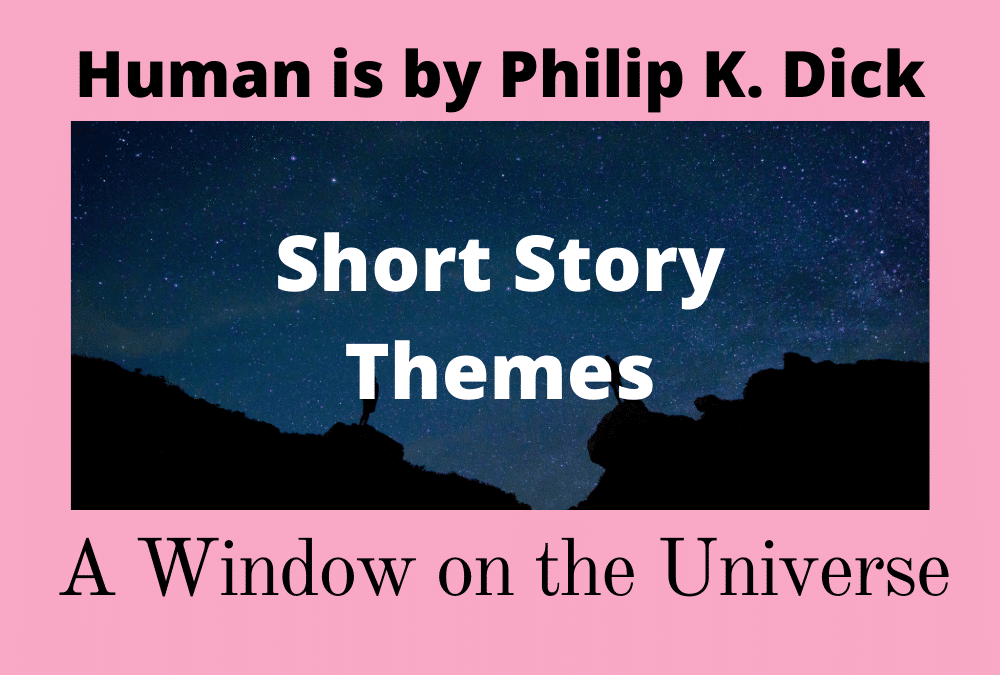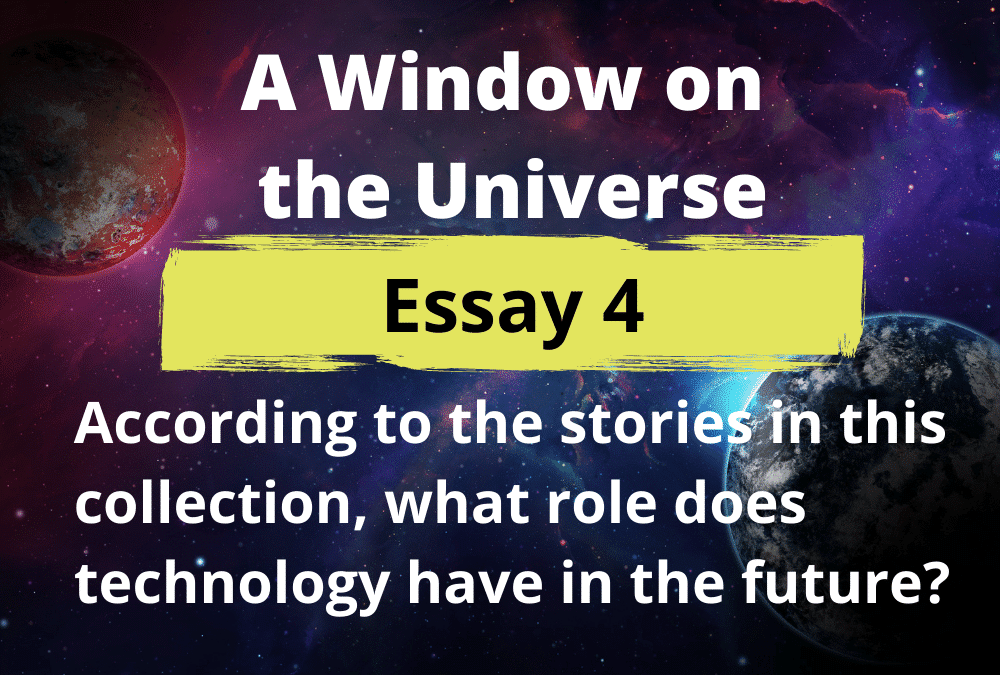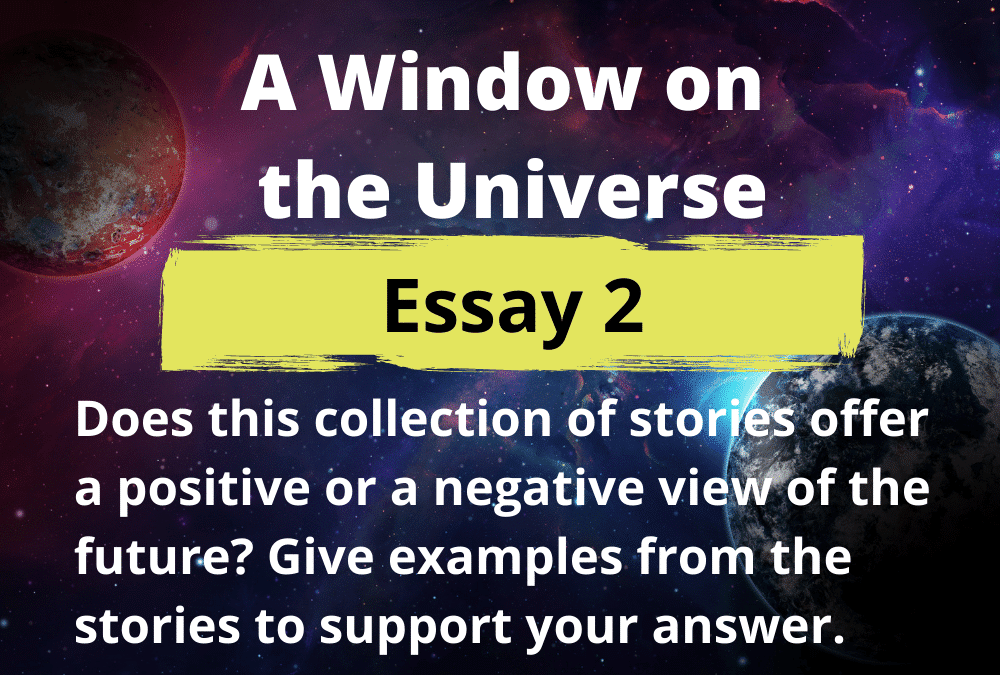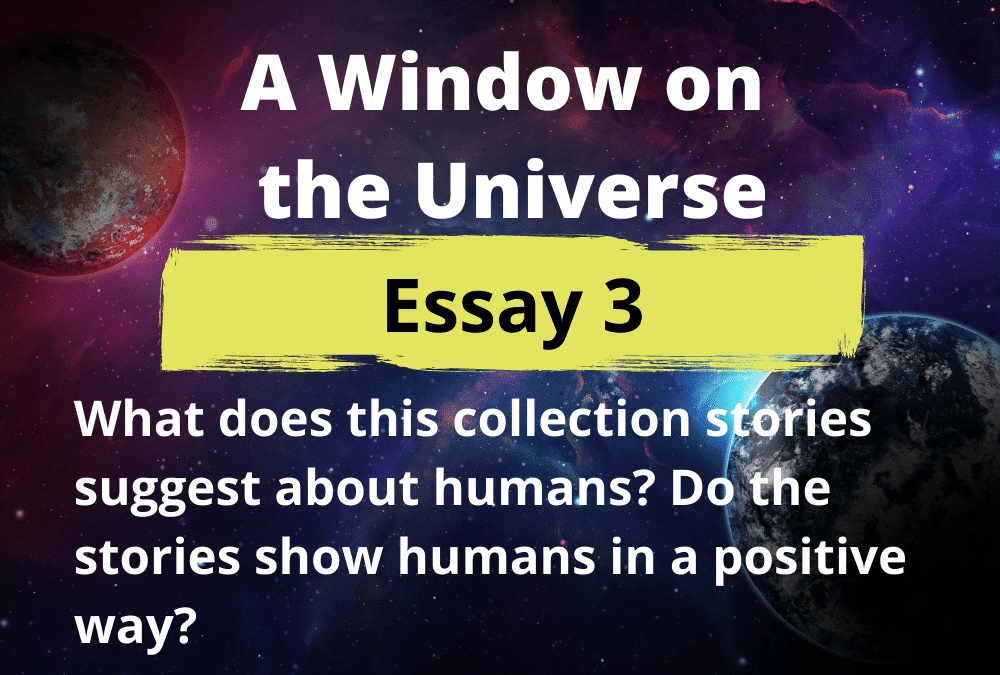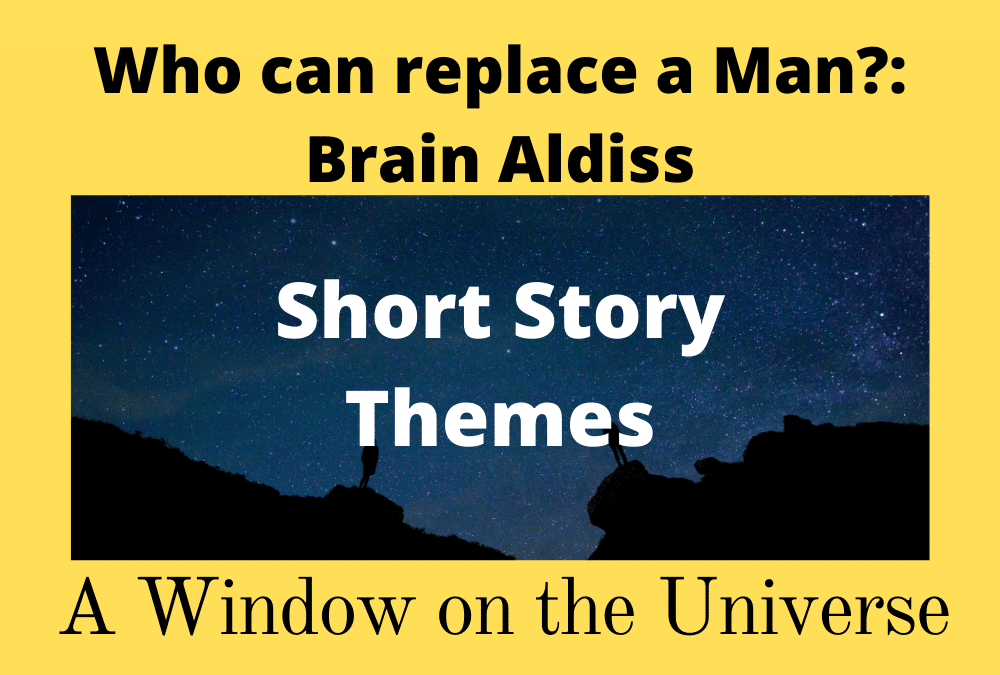
Who Can Replace a Man? A Window on the Universe
Who can replace a man? A Window on the Universe Themes
Who can replace a man?
- Something simple becomes unnecessarily complicated because the unintelligent machines do not have the ability to act for themselves
- Note the willingness of the simple machines to take orders from anyone more intelligent; and the willingness of intelligent machines to destroy the simple ones (sounds like a comment on humanity)
- They also become human-like in their self-preservation and group identity: they destroy two machines on their journey, just because they approached and tried to question them
- Their lack of empathy is frightening, for example when they leave behind the servicer (who cried as they left it to ‘die’) and the penner (who was an important part of the team at first and is intelligent)
- The machines’ lack of flexibility is the cause of their destruction (they cannot mend the servicer, so they leave it behind, and so other ‘injured’ machines cannot be mended); they are also unable to disobey the man’s orders at the end
- This story highlights the human capacities that machines lack: empathy, flexibility, etc.
Students also browsed:
